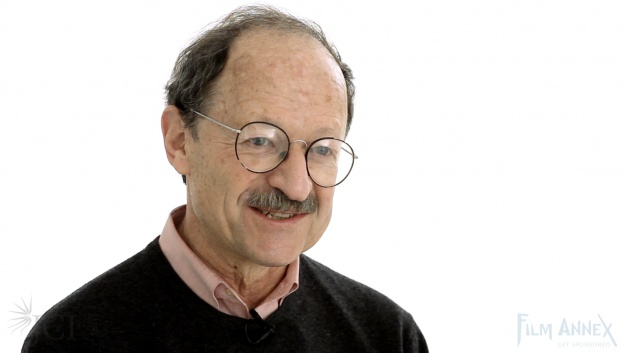
Last month, the Film Annex Studios hosted the Nobel Prize winning scientist, Harold Varmus, and the Executive Director of the Journal of Clinical Investigation, Ushma S. Neill, for the first episode of the JCI series, Conversations with Giants in Medicine. Neill interviewed Varmus who has been the director of the National Cancer Institute since July, 2010.Â
We were excited and honored to have them at our studio and listen to one of the most exciting stories in science. Varmus has previously served as the director of the National Institutes of Health and as the president of the Memorial Sloan-Kettering Cancer Center. In 1989, he won the Nobel Prize in Physiology and Medicine with Michael Bishop "in recognition of their discovery of the cellular origin of the retroviral oncogenes."
Varmus told Neill that growing up, he was someone who liked words and books and was interested in the workings of the mind. He was an English major in college and wrote for the student newspaper. He says, "I became interested in internal medicine because of its narrative aspects - the medical history and the detection part of it, figuring out what's wrong with somebody."
At 28, while working at the NIH, Varmus got hooked on science once he learned the power of instruments in measuring things and understood how exciting it was to get a result from his experiments. He started studying cancer cells and worked to understand how cancer arises.
After winning the Nobel Prize, Varmus became a speaker for the politics of science and became the person to turn to about governmental decisions regarding science, the funding and training of scientists, the integrity of science, amongst other topics. Being a trusted and admired scientist, he later joined the Council of Advisors on Science and Technology in President Obama's administration.Â
Today, Harold Varmus is a figure whose work has allowed us to understand and treat cancer, while revealing fundamental features about how cells live and grow. Once again, we were very honored to be in his presence and learn from him. And we'd like to thank Ushma Neill for making this interview possible.
Please watch this great and inspiring interview here.
Find me on Twitter



